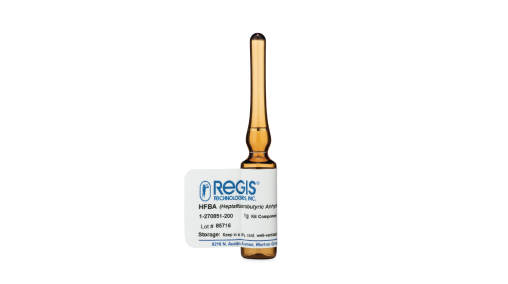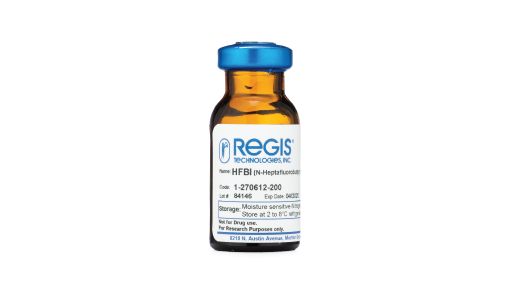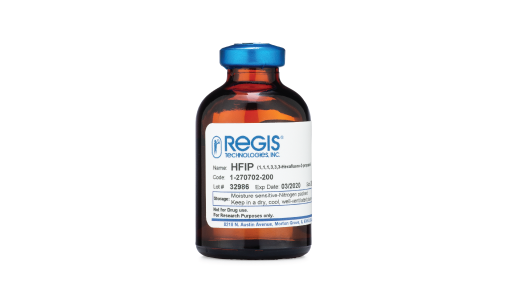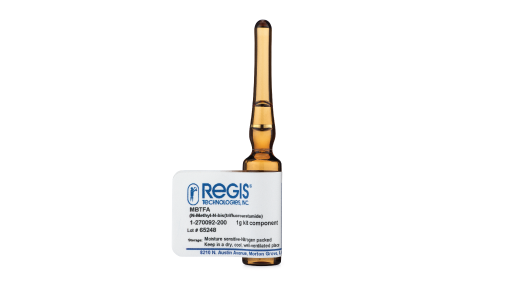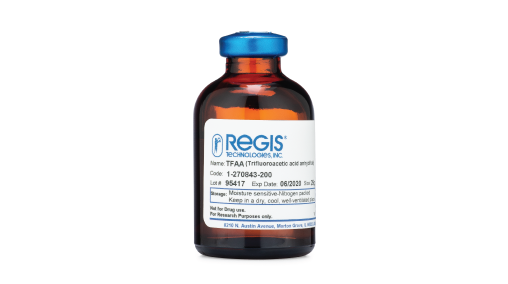Acylation Reagents
Acylation reagents offer the same advantages as silylation reagents: creating less polar, more volatile derivatives. However, in comparison to silylation reagents, acylation reagents can more readily target highly polar, multi-functional compounds, such as carbohydrates and amino acids. In addition, acylation reagents offer the distinct advantage of introducing electron-capturing groups, which enhance detectability during analysis.
Generally, these reagents are available as acid anhydrides, acyl derivatives, or acyl halides. The acyl halides and acyl derivatives are highly reactive and may be suited for use where issues of steric hindrance may be a factor. Acid anhydrides are available in a number of fluorinated configurations, which improve detection. These fluorinated anhydride derivatives are used primarily for Electron Capture Detection (ECD), but can also be used for Flame Ionization Detection (FID). Fluorinated anhydrides are often used in derivatizing samples to confirm drugs of abuse. Despite the special
utility of these reagents, their acidic nature requires that any excess or byproducts be removed prior to analysis to prevent deterioration of the column.
Connect with a member of our sales team to request a free sample, discuss custom sizes or to request a quote. To place an order online, click on the buttons below.

